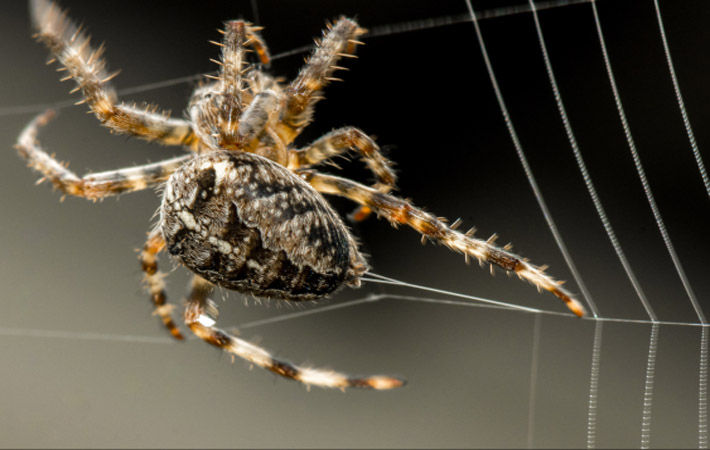UNSW Sydney is studying whether spider silk can be produced for use in military and sports clothing, medical devices and prosthetics. Scientists believe using spider silk could herald a revolution in manufacturing. The international study is being funded by the PLuS Alliance which comprises Arizona State University, King’s College London and UNSW Sydney.
The university has been awarded a grant for the research. The project, led by Dr. Sean Blamires from the Evolution and Ecology Research Centre, UNSW Science, was selected after a call for submissions from researchers at King's College London (KCL), UNSW Sydney and Arizona State University (ASU).UNSW Sydney is studying whether spider silk can be produced for use in military and sports clothing, medical devices and prosthetics. Scientists believe using spider silk could herald a revolution in manufacturing. The international study is being funded by the PLuS Alliance which comprises Arizona State University, King's College London and UNSW Sydney.#
Blamires said the PLuS Alliance seed grant will provide a much-needed opportunity to develop and assess recombinant spider inspired silk proteins, in the hope of mimicking the strong, non-toxic and antibacterial silk.
“Spider silk is stronger than steel and Kevlar. Tapping into its secrets could herald a revolution in manufacturing,” he said. “Several high-performance materials could be produced such as ultra-tough ropes and cables, light-weight safety uniforms, prosthetics, binding sutures and other medicinal materials.”
Spider silk is the world’s toughest natural fibre but unlike silkworms, harvesting silk directly from spiders is not a commercially viable option. Spiders require vast amounts of space for their webs, individual spiders do not produce high quantities of silk, and spiders tend to eat each other.
The Spider Silk Research Laboratory, founded by Blamires, is currently researching how to produce spider silk biomimetics for a range of applications.
“In this age of massive amounts of plastics pollution, the creation of spider silk materials using cutting edge genetic and spinning technologies would be of great interest to industry,” Blamires said. “Biotech is one of the fastest growing industries right now and this project will contribute significantly to that. There’s also the potential for new green manufacturing industries to arise in the future.”
“Advancing the development of high performing products using pollution-free manufacturing is a great win for society,” Blamires added.
Blamires’ team includes associate professor Christopher Marquis, director of UNSW’s Recombinants Products Facility and Dr. Aditya Rawal from UNSW’s Mark Wainwright Analytical Centre, and spans the three PLuS universities. They will work across biotechnological, biochemical, biophysical and bioengineering disciplines to produce and evaluate recombinant spider silk proteins for spinning into fibres using microfluidic based techniques.
PLuS Alliance seed funding is available to assist in the development of research projects that address one or more of the alliance themes - sustainability, global health, social justice, technology and innovation. The funds enable teams to conduct preliminary work and facilitate collaboration across ASU, KCL and UNSW.
The seed-funded projects are part of an ongoing drive by the PLuS Alliance to achieve international impact through collaborative research.
Fibre2Fashion News Desk (SV)
